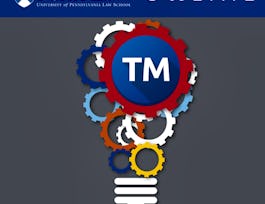Law
Earn Your Degree
Most Popular Courses
Popular Topics
International Law
Top Rated Courses
Finish a Law Course in Under 24 Hours
U.S. Law
Most Popular Certificates
Frequently Asked Questions about Law
The law is defined by the Cambridge Dictionary as "a rule made by a government that states how people may and may not behave in society and in business, and that often orders particular punishments if they do not obey." The creation and enforcement of laws is in many ways the foundational role of government, and it can be considered a defining feature of society as a whole. After all, what is more universally important than our collective definition of what is right and wrong?
We may share an intuitive sense of morality in the abstract - e.g., physically harming others or stealing from them is wrong and should be punished. However, differences over the details of exactly what is defined as a crime and what its consequences are have always been the subject of great debate, and having the power to determine the law is in a sense the objective of all politics.
Beyond the technical definition of the law, injustice in how law enforcement can sometimes work in practice - including inequalities in who is punished, how severely they are sentenced, and what legal services they have access to - have also animated social and political movements throughout history, such as the Civil Rights movement and Black Lives Matter.
Understanding both the "de jure" and "de facto" aspects of the law is thus essential to understanding how society works. It's knowledge you need for being an engaged citizen in a democracy - and, if you choose to pursue a career in law, for your job.
When you think of jobs in the legal field, the first thing that comes to mind might be the kind of high-powered lawyer or judge you see in courtroom dramas like Law & Order, The Practice, or Suits. Becoming a lawyer is a great career choice if you have the desire and ambition, with a median average annual salary of $120,910 according to the Bureau of Labor Statistics.
However, you don't have to go to law school or work on your cross-examination skills to find a rewarding career in this field. Law offices rely on paralegals, legal secretaries, and numerous other "behind the scenes" professionals to provide lawyers with research and administrative support. And businesses often employ full-time compliance specialists to ensure that their operations avoid creating any legal risks.
Many politicians and other government policymakers also draw upon a background in law, either through a law degree or as part of a political science degree. And even if they themselves are not lawyers, Congresspeople and other elected representatives rely on legal experts on their staff to help them achieve their legislative goals effectively.
Online courses are a great fit for studying subjects in law, as the ability to complete coursework on a flexible schedule can be ideal for doing the close readings of legal texts required to develop expertise in this field. This flexibility is also helpful for learners that want to develop their skills in law while continuing to work full-time jobs.
As the world's leading online learning platform, Coursera offers courses in a wide range of legal topics. Many learners choose to focus on specific areas of interest in the law, such as business law, common law, international law, contract law, immigration law, or intellectual property and copyright law. Alternatively, you can look at issues in law through a more normative, big picture lens with courses in justice, human rights, and public policy.
Regardless of your specific focus, Coursera gives you the opportunity to learn from world-class institutions like the University of Pennsylvania, the University of Chicago, and the University of Geneva. And you’ll get the same high-quality education as on-campus students at a significantly lower cost.
Law courses on Coursera offer a foundational understanding of legal principles and their application across various fields:
- Basics of legal systems, including civil and criminal law.
- Understanding of international law and its influence on global relations.
- Skills in legal research, analysis, and argumentation.
- Knowledge of intellectual property rights, corporate law, and compliance.
- Insights into human rights, environmental law, and public policy.
- Techniques for drafting and interpreting legal documents.
- Practical skills for negotiation and conflict resolution.
Law courses on Coursera are structured to accommodate learners at different stages of their professional or educational journey:
- Introductory courses are designed for learners with little to no background in law, offering fundamental concepts and general knowledge.
- Intermediate courses are ideal for learners with some understanding of legal concepts, looking to explore specific areas of law in more depth.
- Advanced courses cater to individuals with significant legal knowledge or experience, focusing on complex legal issues and specialized topics.
Coursera collaborates with accredited schools and institutions to offer a range of educational options:
- Professional certificates that can assist in demonstrating your knowledge and skills in particular legal areas.
- Specialized course certificates that document your understanding of specific legal topics such as data privacy law or employment law.
- Degree programs and professional qualifications that can help prepare you for advanced roles in legal practice, policy-making, or academia.
Studying law courses on Coursera can help prepare you for diverse career opportunities across the legal field and related areas:
- Lawyer: Represent clients in legal matters, provide advice, and advocate on their behalf.
- Legal Consultant: Offer expert advice to businesses, government agencies, and non-profits on legal issues.
- Policy Analyst: Develop and analyze policies that impact society, focusing on legal implications and compliance.
- Corporate Compliance Officer: Ensure that corporations comply with legal regulations and internal policies.
- Paralegal: Assist lawyers by preparing legal documents, conducting research, and managing cases.
Online Law courses offer a convenient and flexible way to enhance your existing knowledge or learn new Law skills. With a wide range of Law classes, you can conveniently learn at your own pace to advance your Law career.
When looking to enhance your workforce's skills in Law, it's crucial to select a course that aligns with their current abilities and learning objectives. Our Skills Dashboard is an invaluable tool for identifying skill gaps and choosing the most appropriate course for effective upskilling. For a comprehensive understanding of how our courses can benefit your employees, explore the enterprise solutions we offer. Discover more about our tailored programs at Coursera for Business here.



























































































